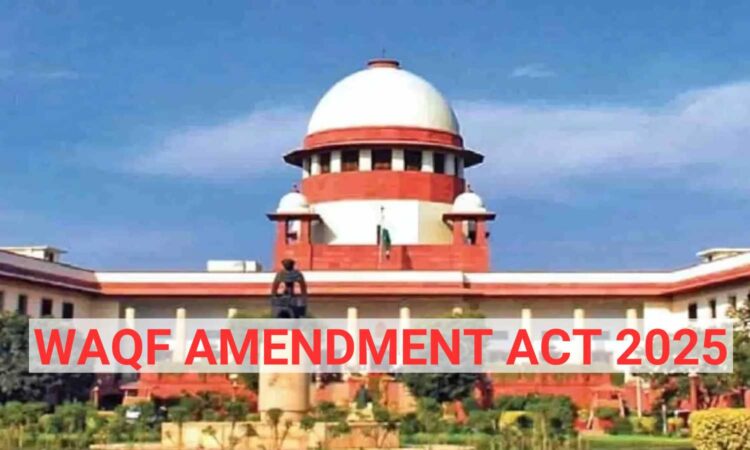New Delhi: The Supreme Court on Monday stayed multiple provisions of the Waqf Amendment Act 2025, after several civil rights groups and opposition leaders challenged the law.
Chief Justice BR Gavai and Justice AG Masih led the bench. They ruled that Section 3(1)(r) – which requires a person to be a practising Muslim for five years to create a waqf – cannot take effect until State Governments frame rules to assess compliance.
The Supreme Court also stopped a clause that let government officers decide if a waqf property encroached on public land. It ruled that executive officials cannot settle property rights involving citizens. That role belongs to the judiciary. The Supreme Court barred any third-party claims until a Tribunal hears the case.
The Supreme Court, however, did not stay the rule allowing non-Muslim members in Waqf Boards. It recommended that ex-officio members, where possible, should be Muslims. The bench also advised limits: no more than four non-Muslims in the Central Waqf Council and no more than three in State Boards.
Judges upheld the requirement to register waqf properties. They said this rule existed in the 1995 and 2013 Acts as well. However, they extended the deadline for compliance. The revised dates will be shared when the judgment is uploaded.
Petitioners opposed provisions of Waqf Amendment Act 2025
The Supreme Court had reserved its order on May 22, after three days of hearings. The petitioners include AIMIM MP Asaduddin Owaisi, former minister Mohammed Ali Shabbir, AAP MLA Amanatullah Khan, TMC MP Mahua Moitra, and other parties and groups.
They objected to several new rules. These include the removal of “waqf by user” protections, the five-year religious practice condition, and executive power to decide land disputes. They also raised concerns about limits on female representation, banning waqfs on ASI-protected land, and excluding waqfs in scheduled areas. Other issues included the new law’s name change and the dilution of waqf-alal-aulad.
Six BJP-led states – Assam, Rajasthan, Chhattisgarh, Uttarakhand, Haryana, and Maharashtra – filed intervention pleas to support the 2025 law. Kerala later joined them.
Back in April, a bench led by former Chief Justice Sanjiv Khanna expressed concern over some provisions. The Centre then told the Supreme Court it would not appoint non-Muslims to Waqf Boards while the case was pending. It also agreed not to de-notify any waqf or alter their legal status.










